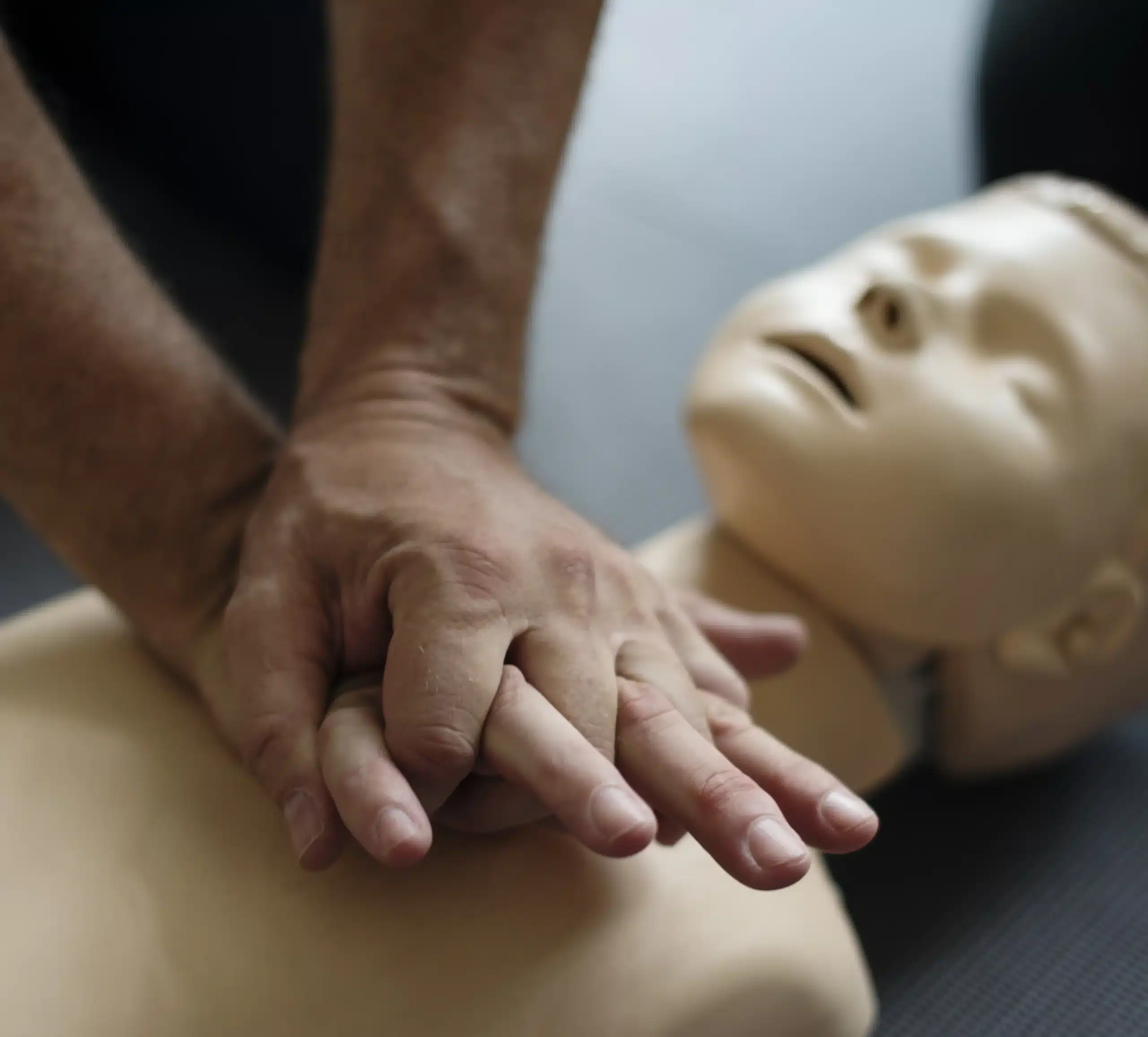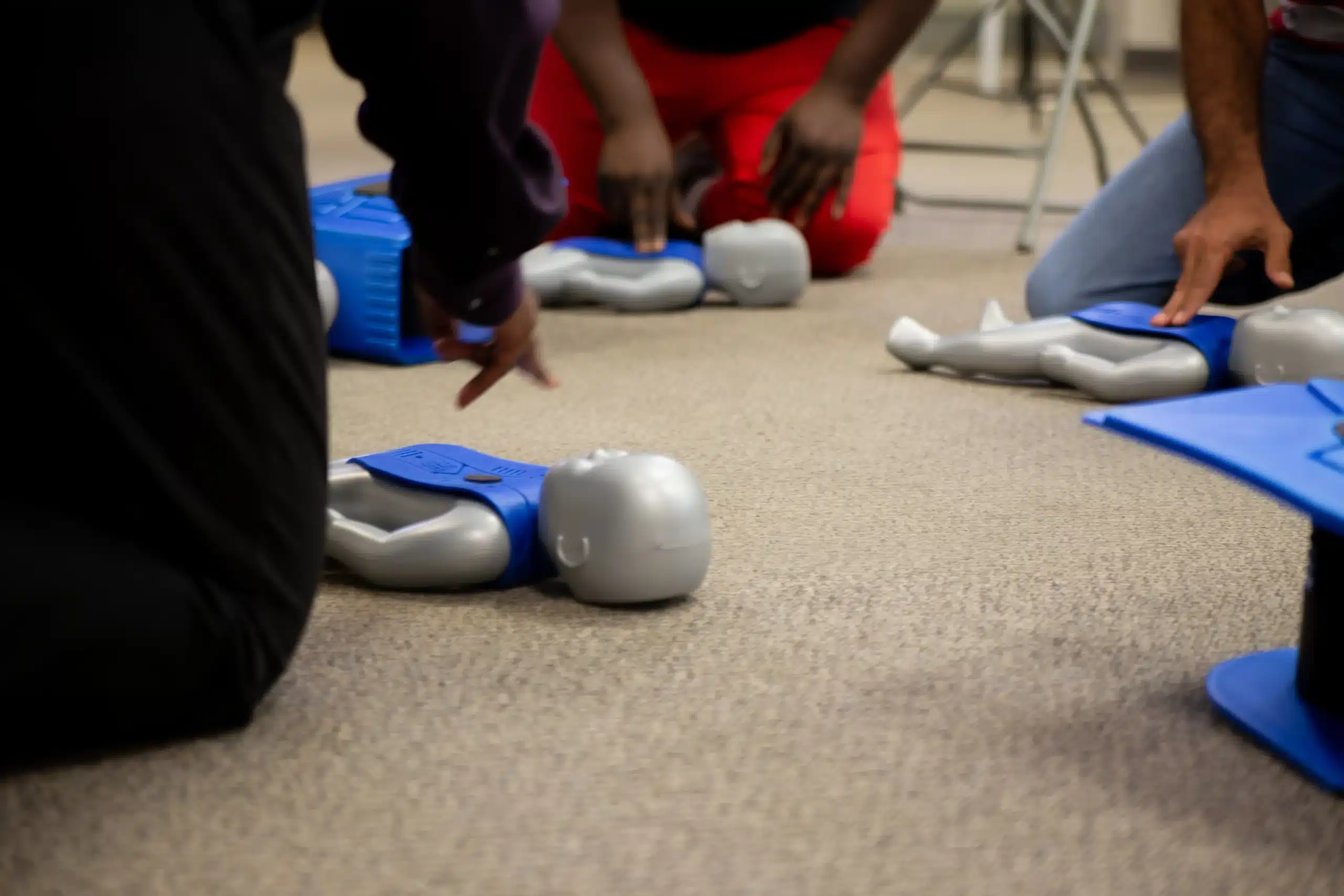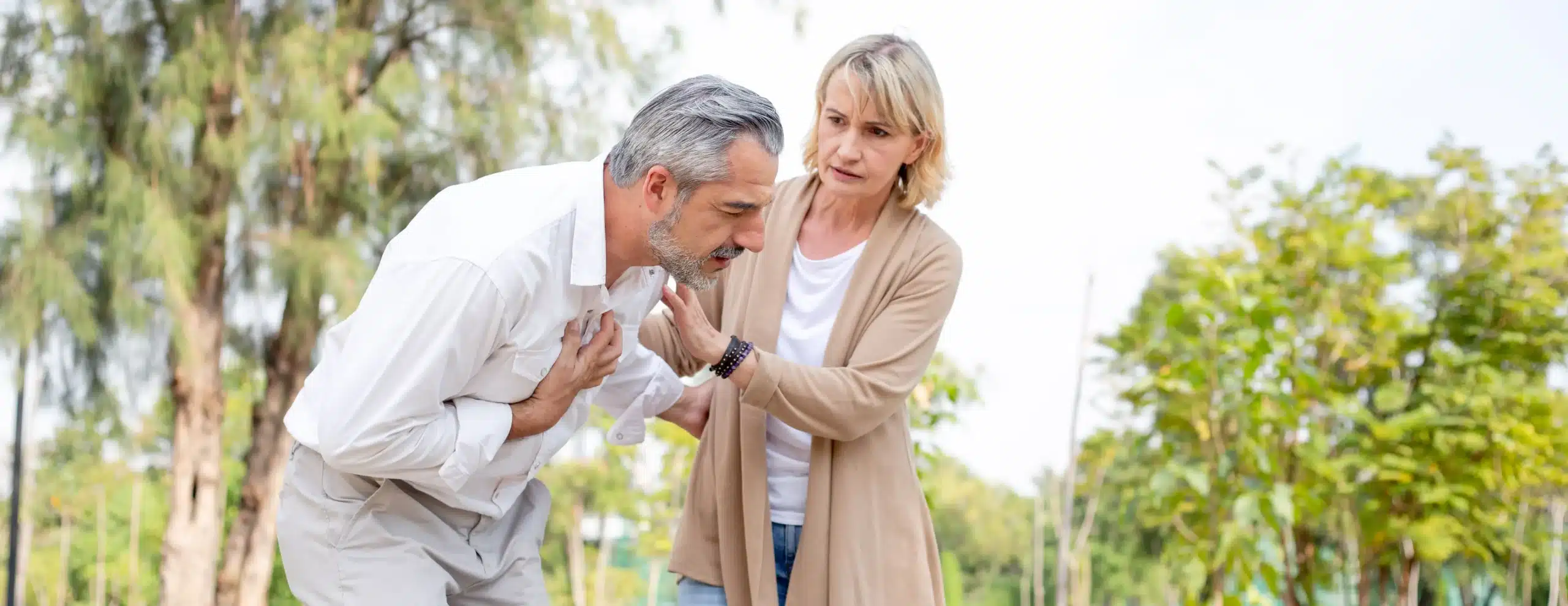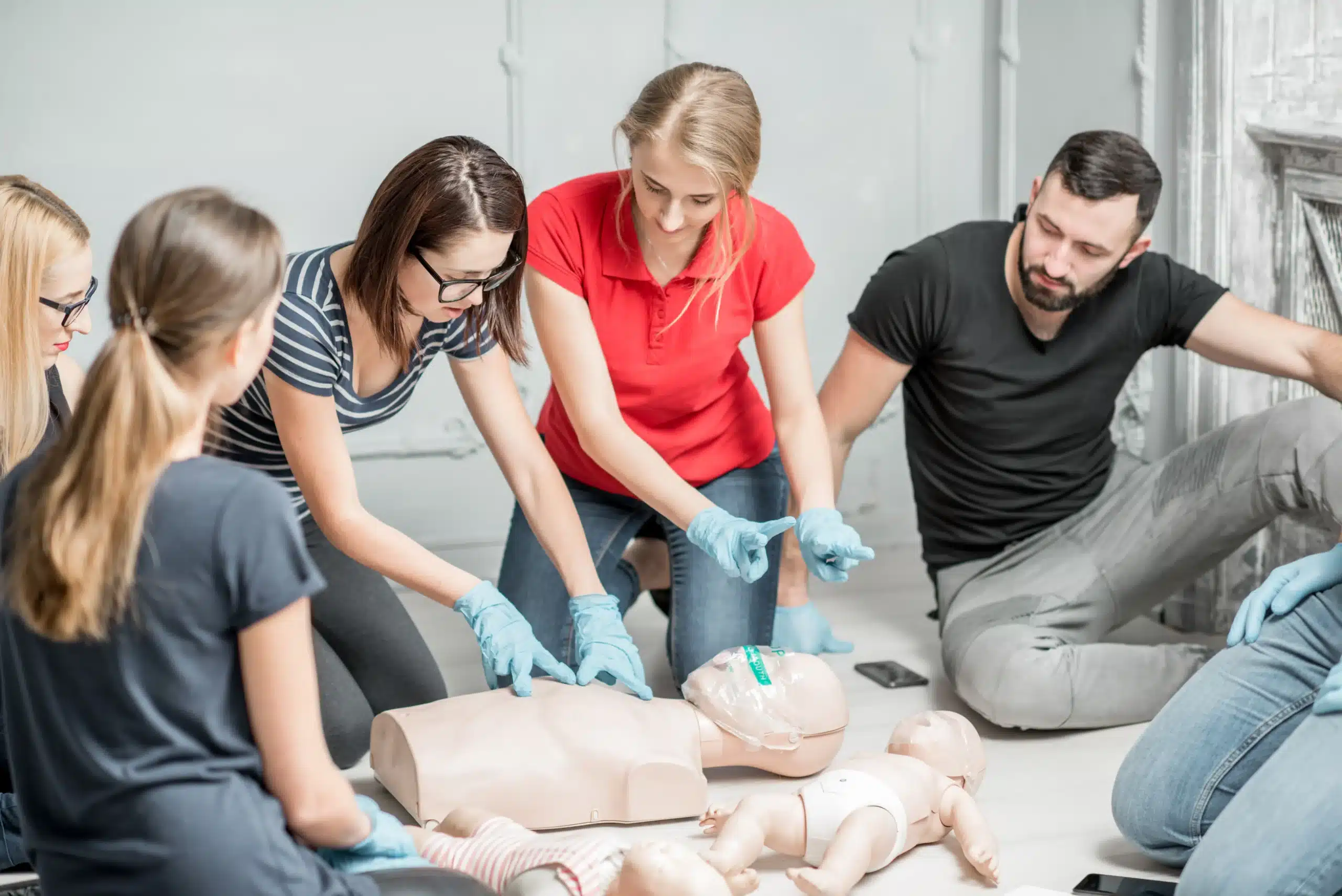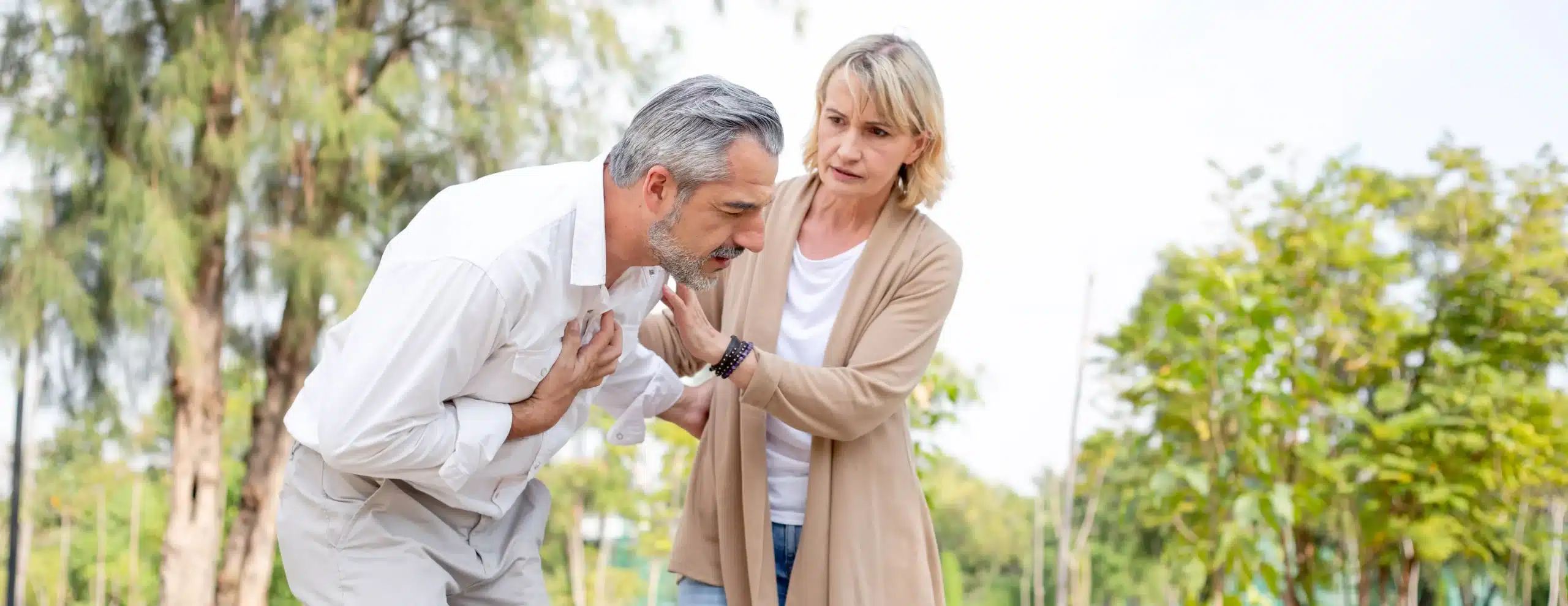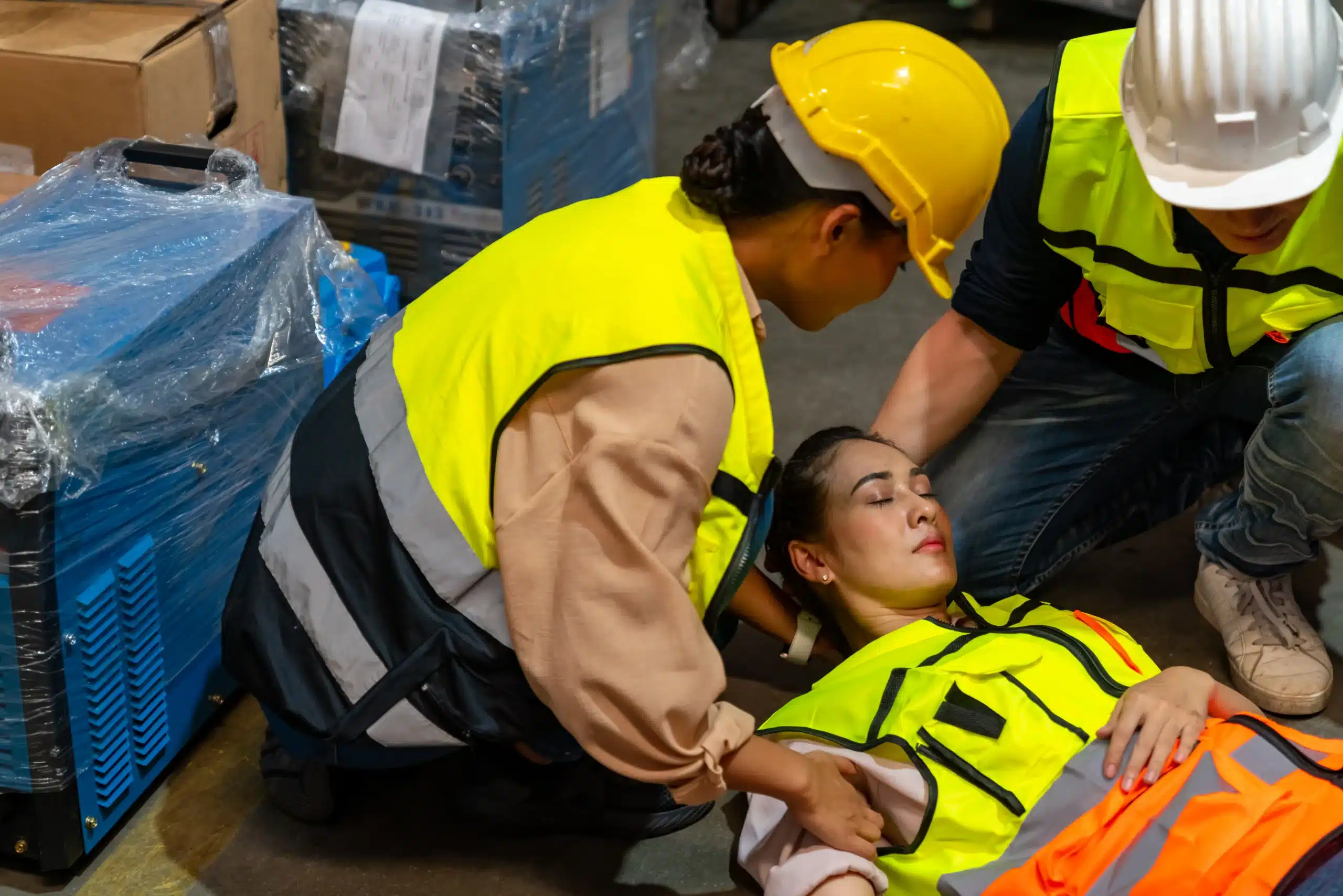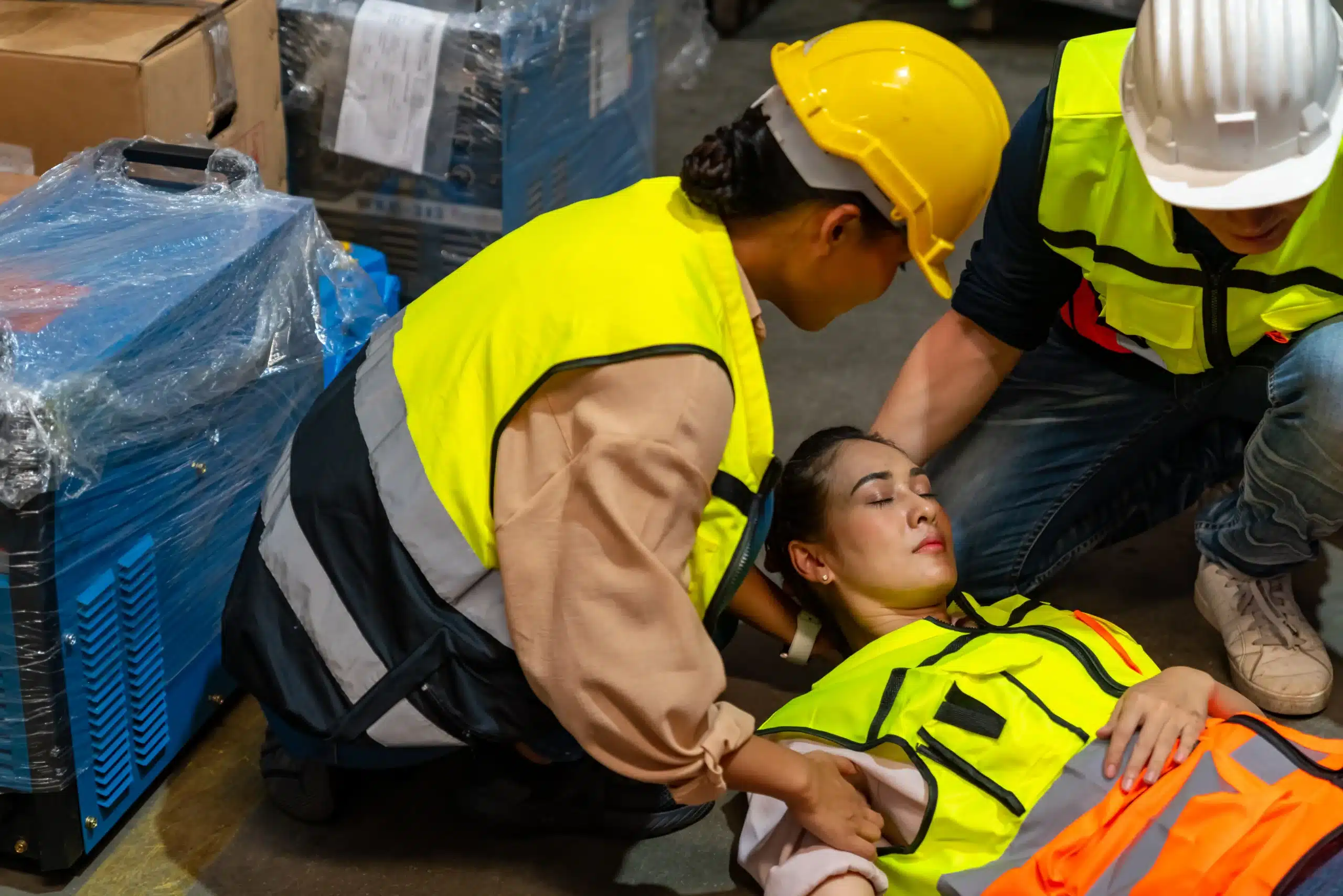Empower yourself with the knowledge and skills to save a life. Getting your CPR certification in Berkeley is easier than you think. This guide provides a comprehensive overview of CPR training options in Berkeley, including what to expect during a course, how to choose the right certification for your needs, and where to find reputable training providers. We’ll discuss the costs associated with CPR certification, explore potential discounts, and explain the process of registering for a course. Whether you’re a student, a healthcare worker, or simply someone who wants to be prepared for anything, this guide will help you get started on your path to CPR certification.
Key Takeaways
- Find the right CPR class for you: Berkeley offers a range of CPR certifications, from basic life support to advanced cardiac care, so you can choose one that aligns with your personal or professional needs.
- Compare course options and providers: Look at factors like cost, the type of certification offered (AHA, Red Cross), and what’s included in the course fee to find the best value. Don’t forget to check for group discounts if you’re training with friends or colleagues.
- Stay current with your skills: CPR skills can fade over time, so regular practice and renewing your certification every two years are essential for confident and effective emergency response.
What is CPR Certification?
What is CPR?
CPR (Cardiopulmonary Resuscitation) is a lifesaving technique used in emergencies when someone’s heartbeat or breathing has stopped. It involves chest compressions, and sometimes rescue breaths, to maintain blood flow and oxygen to vital organs. Learning CPR can give you the confidence to act quickly and effectively during a crisis. For a comprehensive guide to CPR courses in Berkeley, check out this helpful resource.
Why is CPR Certification Important?
CPR certification demonstrates that you’ve received formal training and been assessed in CPR techniques. While good samaritan laws protect people who offer assistance, a CPR certification shows you have the knowledge and skills to perform CPR correctly. Even if your certification expires, attempting CPR is always better than inaction in a medical emergency. However, keeping your certification current is best for maintaining sharp, up-to-date skills.
Common CPR Training Myths
One common myth about CPR training is that it always involves mouth-to-mouth resuscitation. Hands-only CPR is often recommended for untrained bystanders. Another misconception is that you’re more likely to perform CPR on a stranger. Statistically, about 80% of out-of-hospital cardiac arrests happen at home, meaning you’re more likely to use these lifesaving skills on a loved one. Don’t let these myths discourage you from getting CPR certified; the skills you learn could save someone’s life.
Where to Get CPR Certified in Berkeley
Finding the right CPR class in Berkeley means finding an option that fits your schedule, learning style, and budget. Here are a few places to check out:
Berkeley CPR Classes
Berkeley CPR Classes offers AHA-certified courses in CPR, BLS, ACLS, PALS, and First Aid. With a low-price guarantee and classes offered daily, they make it easy to find a time that works for you. Their central Berkeley location serves the surrounding areas of Alameda and Oakland. For businesses or large groups, they also offer discount group rates.
American Red Cross
The American Red Cross provides CPR/AED training in Berkeley with several different learning formats. Choose from in-person classes, online learning, or a blended learning option that combines online coursework with hands-on skills sessions. Their in-person training leads to a two-year certification that meets OSHA requirements.
UC Berkeley RecWell
RecWell offers a convenient option for students and those affiliated with UC Berkeley. They provide a range of health and safety courses, including CPR/AED, first aid, and more. Course formats vary, with some including online components, and many lead to nationally recognized certifications.
Other Local Providers
You can find several other organizations and training centers offering CPR certification in Berkeley. When making your decision, compare course prices and confirm the certification will meet your specific requirements. A quick online search, or checking with local community centers and hospitals, can help you find additional providers.
CPR Certification Courses
Choosing the right CPR certification course depends on your specific needs and career goals. Here’s a breakdown of common CPR certifications available in Berkeley:
Basic Life Support (BLS)
The BLS certification from Berkeley CPR Classes covers core life-saving skills for healthcare providers and other professionals. You’ll learn high-quality CPR for adults, children, and infants, plus techniques for using an AED and relieving choking. BLS certification is often a prerequisite for advanced certifications, making it a solid foundation for a healthcare career. While the typical cost is around $120, BLS courses in Berkeley can range from $75 to $150. Check the Berkeley CPR Classes website for their low price guarantee.
CPR and AED Training
The American Red Cross offers various CPR/AED training options in Berkeley, including in-person classes, online learning, or a blended format. In-person training provides hands-on practice and a two-year certification meeting OSHA requirements. This course focuses on adult CPR and AED use, suitable for anyone wanting to learn these essential skills.
First Aid and CPR
Combining First Aid and CPR training offers comprehensive emergency preparedness. Berkeley CPR Classes provides AHA-certified courses covering both, equipping you to handle various medical situations. These combined courses are convenient for those needing both certifications, often required for certain jobs or volunteer positions.
Pediatric CPR and First Aid
If you work with children, consider a Pediatric CPR and First Aid course. UC Berkeley RecWell offers courses covering CPR and first aid for both adults and children. This specialized training focuses on the unique needs of infants and children, giving you the confidence to respond effectively in pediatric emergencies. A blended online/in-person format accommodates busy schedules.
Advanced Cardiovascular Life Support (ACLS)
For healthcare professionals, the ACLS course at Berkeley CPR Classes goes beyond basic CPR. Designed for those responding to cardiovascular emergencies, ACLS covers advanced techniques like airway management, pharmacology, and team dynamics. This certification is essential for doctors, nurses, paramedics, and other healthcare providers in critical care settings.
CPR Certification Costs
Getting CPR certified is an investment in your skills and the safety of your community. Understanding the costs involved helps you plan and budget effectively. Let’s break down what you can expect to pay for CPR certification in Berkeley.
Course Costs
CPR training costs in Berkeley typically range from $95 to $105. Several factors influence the final price, including the type of course you take. For example, a basic CPR course will likely have a different price tag than a more advanced BLS course, which usually falls between $75 and $150. The course format also plays a role: in-person, online, or blended learning options each come with their own cost structure. Finally, the training provider you choose will affect the overall cost. For the most current pricing, check the Berkeley CPR Classes website.
Discounts and Financial Aid
Looking to get CPR certified with a group? Many training providers, including Berkeley CPR Classes, offer discounts for group bookings. This can be a great way to save money if you’re organizing training for your workplace, a group of friends, or a community organization. Don’t hesitate to ask potential providers about group discounts and low price guarantees.
What Your Course Fee Covers
Your CPR course fee covers more than just the instruction time. It typically includes essential materials like your student handbook and access to practice equipment. The fee also covers the costs associated with your certification card, which is proof of your successful completion of the course. When comparing prices between different providers, consider the overall value. A slightly higher fee might be worth it for higher quality instruction, more comprehensive materials, or a more convenient training experience.
Get CPR Certified: The Process
Getting your CPR certification is straightforward. Here’s what you can expect:
Register for a Course
First, find a CPR class that fits your schedule and learning style. Berkeley CPR Classes offers a variety of American Heart Association (AHA) certified courses. The AHA is a leading authority in resuscitation science, education, and training. You can find everything from basic CPR and AED training to advanced certifications like BLS and ACLS. Review their course descriptions and schedules on their website. If you have a group that needs training, they offer discount group classes.
Prerequisites and Preparation
Most CPR courses don’t require previous medical experience. Understanding the process is important. This clarifies CPR certification and renewal in Berkeley. You might receive some preliminary materials to review before your class, but generally, showing up ready to learn is all it takes.
The Training Experience
CPR classes combine instruction with hands-on practice. You’ll learn the essential steps of CPR, including chest compressions, rescue breaths, and how to use an AED. The RQI program offers a fast-track option for those looking for an accelerated learning experience. Expect a supportive learning environment where you can ask questions and practice your skills until you feel confident.
Certification and Renewal
Once you successfully complete the course, you’ll receive your CPR certification card. CPR certifications are typically valid for two years, but your skills can decline within months of training, according to the Red Cross Scientific Advisory Council. Stay up-to-date with the latest guidelines and techniques by taking a refresher course before your certification expires. Berkeley CPR Classes makes renewing your certification easy with regularly scheduled courses and a low price guarantee.
Choose the Right CPR Course
Finding the right CPR course often means balancing several factors to best suit your needs. Think about your goals for certification, your budget, and what kind of learning environment you prefer.
Factors to Consider
CPR training in Berkeley typically costs between $95 and $105. Several things influence the final price, including the specific course type (CPR, BLS, ACLS, etc.), whether you opt for in-person or online training, and the organization offering the course. Location can also affect pricing, so compare options in Alameda, Oakland, and Berkeley. If you’re working with a limited budget, look into providers like Berkeley CPR Classes, which offers a low price guarantee.
Compare Courses and Providers
It’s wise to compare offerings from different organizations. Read reviews and ask for recommendations. Consider factors like class size, the instructors’ experience, and the training provider’s overall reputation. Berkeley CPR Classes offers a range of American Heart Association certification courses. They also offer discounts for groups, which can be helpful for workplaces or groups of friends. Make sure the training meets any requirements for your job. For example, CPR training from the Red Cross often meets general workplace safety standards.
Key CPR Skills
No matter which course you choose, ensure it includes hands-on practice. This practical experience builds confidence and prepares you to respond effectively in a real emergency. Look for courses that incorporate practice with mannequins and other equipment, so you can develop the muscle memory and quick thinking you’ll need to perform CPR correctly.
Make the Most of Your CPR Certification
Getting your CPR certification is a fantastic achievement. Now, here’s how to make the most of it:
Use Your CPR Skills
It’s natural to feel a little rusty after your initial training. Refresh your skills periodically. Even if your certification has lapsed, remember something is always better than nothing in a real emergency. It’s best to stay current with your CPR certification so your skills are sharp when you need them.
Prepare for Your CPR Course
Before your class, take some time to familiarize yourself with the course content. Even a little prep work can ease any anxiety you might have about the course or exam. Knowing what to expect makes a difference. Consider which type of course best suits your needs, whether it’s standard CPR/First Aid, BLS for healthcare providers, or another option.
Maintain Your Certification
CPR certifications are typically valid for two years. Mark your calendar and plan to renew before it expires. This keeps your skills fresh and ensures you’re always ready to help. Berkeley CPR Classes offers a low price guarantee, making renewing both easy and affordable. Staying certified means you’re prepared to make a difference when it matters most.
Related Articles
- CPR Myths You Need to Stop Believing – Berkeley CPR Classes
- Why CPR is Vital in Healthcare
- CPR Training in Berkeley: Your Guide – Berkeley CPR Classes
- CPR & First Aid Training in Berkeley: Your Guide – Berkeley CPR Classes
- CPR Renewal in Alameda: Your Guide to Certification – Berkeley CPR Classes
Frequently Asked Questions
What’s the difference between CPR and First Aid?
CPR focuses specifically on life-threatening situations where someone’s breathing or heart has stopped. First Aid covers a broader range of injuries and illnesses, from minor cuts and burns to more serious conditions like choking or allergic reactions. While distinct, they often complement each other in emergency situations.
How long does it take to get CPR certified?
CPR certification courses typically take a few hours to complete, depending on the level of certification and the specific course format. Some providers offer accelerated programs, while others provide more comprehensive training spread over a longer period.
Is online CPR certification valid?
Online CPR certification can be a convenient way to learn the basics, but it’s essential to choose a reputable provider that meets industry standards. Many online courses require an in-person skills assessment to receive full certification. Check with your employer or regulatory body to ensure online certification meets their requirements.
How often do I need to renew my CPR certification?
Most CPR certifications are valid for two years. Regular renewal ensures your skills and knowledge are up-to-date with the latest guidelines. Even if your certification is still valid, consider refresher courses to maintain your confidence and proficiency.
What if I’m nervous about performing CPR in a real emergency?
It’s completely normal to feel apprehensive about using your CPR skills in a high-pressure situation. Regular practice and staying current with your certification can help build your confidence. Remember, even imperfect CPR is better than no CPR, and your willingness to act can make a life-saving difference.


